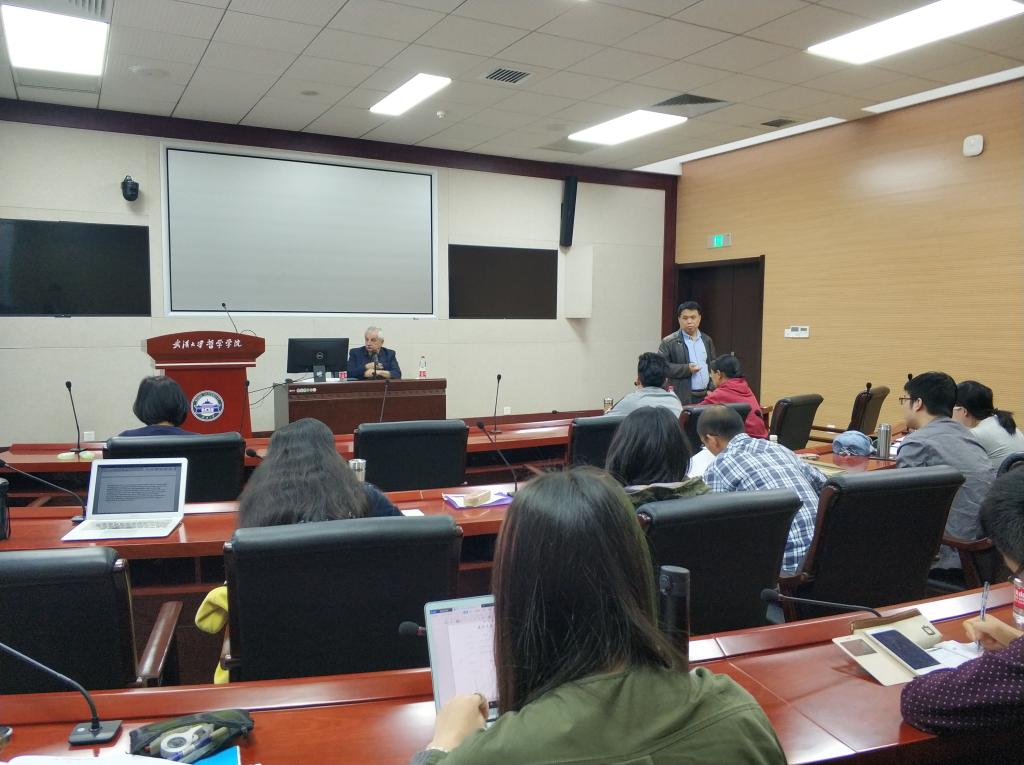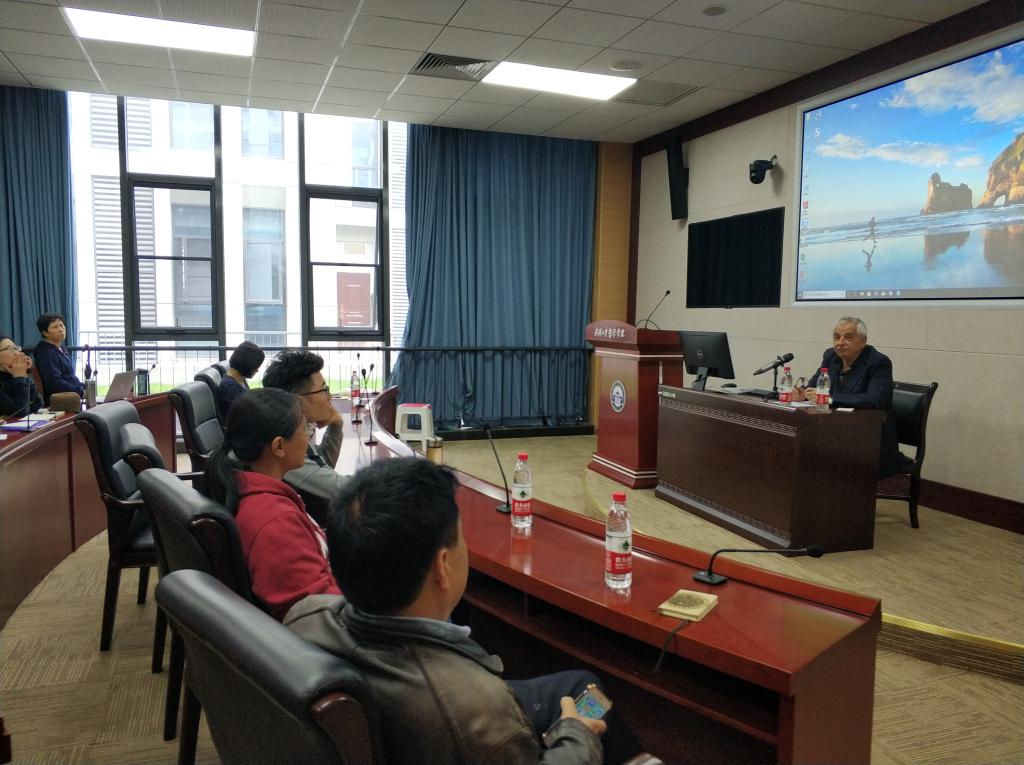Brossat’s Talk on The Philosopher’s Fall
On 6 May, 2019 (14:00-15:30), Alain Brossat, professor of Paris 8 University, was invited to give a lecture entitled“Le philosophe renversé”in the B214 lecture hall. The lecture was hosted by Prof.Hao Changchi. Nearly 30 students attended this lecture.

Alain Brossat touched upon the history of western philosophy through the body gesture of "falling down", which happened successively to Thales, Montaigne Foucault and Barthes. He believes that for philosophers, “falling” rendered a unique and instantaneous experience, and sublimed their thoughts to a new stage via recollections of it.
In the beginning, Alain Brossat explained his strategy, he would go on by examining other famous philosophical stumblings which lead us not from Thales to Heidegger but from the former to Foucault and Barthes, by passing through Montaigne and Rousseau. He thought that each of these philosophical falls is both a repetition and a specific, singular event.
Then, Alain Brossat talked about the falling of Thales, In opposition with the superficial laughter of the maid which condenses all of the anthropocentric prejudices of the Greeks, Thales is for Nietzsche the realist, because he has begun to scrutinize the deepness of nature, by seeing in it [this gesture] a requirement for the survival of the city.
In addition, according to Alain Brossat, Montaigne brings the account of the fall in the field of the philosopher's own experience. He thought that the main lesson Montaigne got is this : it is a good thing for the philosopher, the wise man to “ keep a close watch on himself ”, to record and convey the account of this studious self-examination.
As for the falling of Rousseau, in Alain Brossat’s opinion, the accident is even more striking, because of that Rousseau goes farther than Montaigne, he is more radical in transfiguring the accidental fall into a revelation, a founding (creative) event.

Last but not least important, as Alain thought, like Montaigne, like Rousseau, Foucault’s falling indicated this: this experience of the violent overthrow is a revelation, in its uniqueness and instantaneousness. He reaches a new stage in the overbid (outdoing), by speaking about this event as of one of his best recollections.



